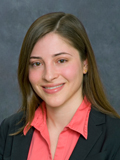by Lee Yanco W’10
 As OCR goes on and Juniors scramble to secure internships for the summer, it may be hard to imagine any job outside of finance and consulting. Most internships offered through OCR are focused on investment banking, sales-trading, and consulting gigs – due to both the nature of these industries’ hiring cycles and the good reputation of Penn students. As a result, it may seem like your future lies on Wall Street.
As OCR goes on and Juniors scramble to secure internships for the summer, it may be hard to imagine any job outside of finance and consulting. Most internships offered through OCR are focused on investment banking, sales-trading, and consulting gigs – due to both the nature of these industries’ hiring cycles and the good reputation of Penn students. As a result, it may seem like your future lies on Wall Street.
Stop.
Stop, ask yourself, and answer the question, the most important question you can ask yourself when looking for a job: What do you want to do? The emphasis is on the word YOU, because this job search is about YOU and YOU alone, and only YOU can decide what you want to do and what YOU want to get good at.
While I’m sure there are some of you who truly are passionate about finance, my gut tells me more of you are interested in other areas. You should never do something just because it’s the default choice – you will end up hating your job and daydreaming about doing the things you really want to do. And after a year of working in tech, I promise you it is totally possible to spend your working years having fun in a job you love instead of making a salary doing something you hate. There is nothing worse than spending 5 days a week getting better at something you don’t want to get better at, it’s an existential time waste.
At AppNexus, we specifically look for interviewees who want to be here and want to be in tech, for the simple reason that those who like their job and want to do their job will do the best at it and be the best people to work with. Those who have a passion for technology will succeed, those who fake it are quickly weeded out.
However, finance and consulting have one advantage over these other opportunities with regards to OCR – they offer formal training programs for new employees that quickly acclimate fresh graduates to their industries, teaching them the industry-specific skills they need to succeed. Other industries either have not caught up to finance and consulting in campus appeal, or otherwise don’t have a structured educational program in place to train complete newbies to the industry. Because of this, it may seem daunting to stay from the “standard” path.
So, how do you go about showing non-finance companies you are passionate and worth considering despite your lack of skills?
Simply put, there isn’t any way to do it but to do it. You can sit around and tell interviewers you enjoy tech or fashion or healthcare, or you can do something and then SHOW interviewers your passion for tech or fashion or travel. Enjoy tech? Teach yourself a little code and launch a website or two. Enjoy fashion? Create a samplebook or perhaps get your own clothes custom-made. Enjoy healthcare? Join your professor in a research project and get your name attached to a paper. There are many ways to take initiative and get something done, a little work on your end can reap huge dividends later.
When I graduated I took a consulting job through OCR and proceeded to dislike everything about my choice for the next year. I struggled through banal work, thinking that this is just how the working world is: show up, do something you don’t enjoy, rinse and repeat for 45 years and then you can finally enjoy yourself. When they mercifully fired me after a year (the best thing they ever did for me), I threw myself into what I actually cared about: technology. Even though I did not really know how to code, I taught myself the basics and project-managed a few ideas I had to fruition, launching two web services. Those eventually failed, but simply because I went out and actually DID something, all of a sudden I was getting interest right and left from technology companies. That got parlayed into my current job at AppNexus, where I’ve spent the past year doing something I love and succeeding in a field I want to succeed in. You can do the same, there’s nothing stopping you except you.
Good jobs aren’t looking for grunts like they do in finance and consulting. They’re looking for people who are passionate, they’re looking for people who want to love what they do. Finance and consulting jobs may claim to give you a broad-based skill set, but employers in your chosen field aren’t looking for investment banking skills, they’re looking for people who have demonstrated passion above all.
Find something you love and pursue it. The most important person in your life is you, and your time is far too precious to be spent doing something you don’t enjoy.


